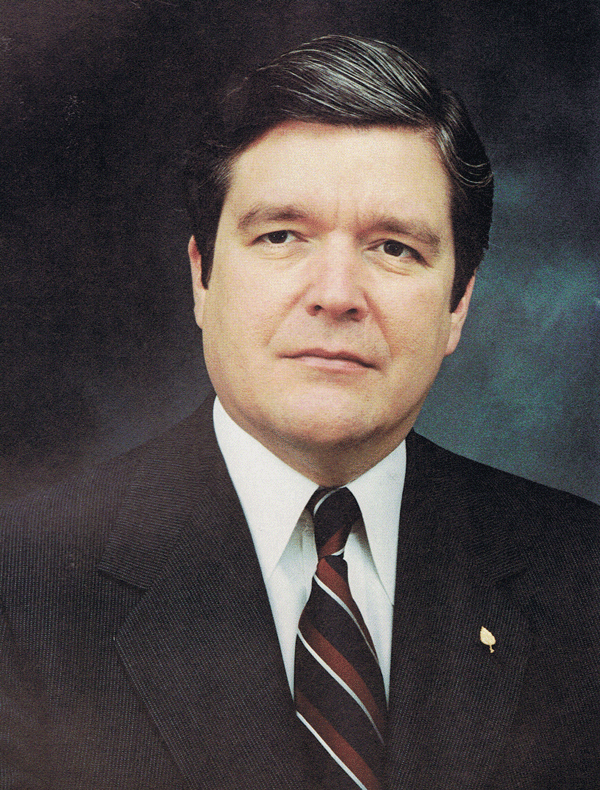The Example
The example of Larry McDonald
Almost all politicians today betray the people by promising what they cannot deliver. They promise to fix things in Washington if only they and their party are handed control of the executive and legislative branches. In contrast, Congressman Larry McDonald argued that building an educational base must precede real political gains.
“Larry” enjoyed that base in Georgia’s 7th district. As a result, he was able to maintain a hardline position in Congress and still get reelected despite a hostile local press and the infusion of Establishment money to fund opposition candidates from both major parties.

The political career of Lawrence Patton McDonald, M.D. (first elected as a Democrat in Georgia’s 7th district in 1974) demonstrates that a congressman can vote to uphold the Constitution — in spite of his party leadership. Several conservative indices rated McDonald’s voting record at 100 percent, because he consistently voted against unconstitutional spending and for lower taxes.
Moreover, Larry’s presence in Congress had a much greater effect than just one vote out of 435. At the conclusion of McDonald’s freshman year, Republican Senator Barry Goldwater observed that Larry McDonald had perhaps “contributed more to the Congress than … any other freshman who has ever come here.”
A July 1983 Conservative Digest subscriber poll reflected legions of similar testimonies. To the question, “Which of these 12 conservative leaders most represent your personal philosophy?” 21.6 percent chose Larry McDonald (the top scorer) as opposed to 1.0 percent for Newt Gingrich (who came in last). To the question, “Who would you like to see as the future leader of American conservatives?” Larry tied with Senator Jesse Helms for 2nd place (Congressman Phil Crane came in first), with Newt Gingrich again trailing in last place.
A principled stand in today’s climate may not win the favor of uninformed, deceived voters. But Congressman McDonald demonstrated that standing on principle was not the kiss of death, even in the face of strong opposition from the Establishment and the leadership of both major political parties, provided there was organized informed support back home.
The 1978 edition of The Almanac of American Politics claimed that McDonald “is likely to be just as controversial in 1978 as he has been in the past,” and that “his seat must be considered in perpetual jeopardy.” But that year McDonald was re-elected with 67 percent of the vote. Nevertheless, the 1980 edition [of the Almanac] opined that McDonald’s seat that year was “almost certain to attract tough competition,” and “it seems likely that some day he will succumb.” Yet he was re-elected with 68 percent of the vote, and in 1982 garnered 61 percent, securing his fifth term.
Following the 1982 election, the liberal Atlanta newspaper serving McDonald’s district admitted that Larry was unbeatable and openly worried that he had his eye on a Senate seat. (Note: Larry McDonald’s career in Congress was cut short in 1983 when a Soviet missile brought down the commercial airliner, KAL flight 7, on which he was a passenger.)
